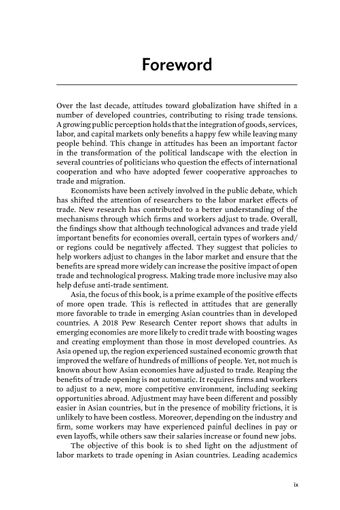The Rise of the People’s Republic of China and Its Competition Effects on Innovation in Japan

- By: World Trade Organization
- Source: Trade Adjustment in Asia , pp 207-228
- Publication Date: September 2019
- DOI: https://doi.org/10.30875/7371a10f-en
- Language: English
As a reaction to import competition from low-wage economies, firms in developed economies would respond by upgrading their innovative activities, leading to so-called defensive skill-biased innovation. In this chapter, we examine this “defensive innovation” hypothesis, which was first discussed in Wood (1994) and subsequently formalized in Thoenig and Verdier (2003). In a broader context, the effect of competition on the rate of innovation has been one of the most studied areas in the literature (e.g., Aghion et al. 2005). In the study most relevant to our work, Bloom, Draca, and Van Reenen (2016) found that a large sample of European firms increased a wide range of their innovative activities (patenting, research and development [R&D] expenditures, computer use, and total factor productivity growth), driven by intensified competition from the People’s Republic of China. This innovation was conducted within-firm.
-
From This Site
/content/books/9789287050229s005-c002dcterms_subject,pub_countryId-contentType:WorkingPaperSeries -contentType:Periodical -contentType:BookSeries -contentType:ReportSeries105


